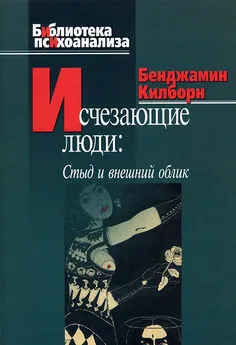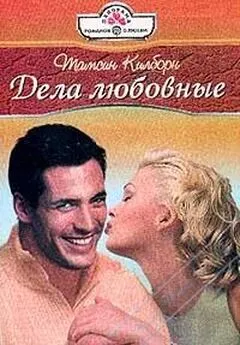Бенджамин Килборн - Исчезающие люди. Стыд и внешний облик
- Название:Исчезающие люди. Стыд и внешний облик
- Автор:
- Жанр:
- Издательство:Литагент «Когито-Центр»881f530e-013a-102c-99a2-0288a49f2f10
- Год:2007
- Город:Москва
- ISBN:978-5-89353-231-9
- Рейтинг:
- Избранное:Добавить в избранное
-
Отзывы:
-
Ваша оценка:
Бенджамин Килборн - Исчезающие люди. Стыд и внешний облик краткое содержание
Автор книги, имея подготовку по литературе, истории, антропологии и клиническому психоанализу, рассматривает вопрос о том, как человек, контролируя свой внешний облик, пытается совладать со своими чувствами. Считая, что психология внешнего облика еще не достаточно исследована, Килборн объединяет в своей книге примеры из литературы и своей клинической практики, чтобы сделать следующее утверждение: стыд и внешний облик являются главной причиной страха, возникающего и у литературных персонажей, и у реальных людей. Автор описывает, что стыд по поводу своего внешнего облика порождает не только желание исчезнуть, но и страх исчезновения.
«Исчезающие люди» являются неким гибридом прикладной литературы и прикладного психоанализа, они помогают нам понять истоки психокультурного кризиса, потрясающего наше ориентированное на внешность, побуждающее к стыду общество.
Книга будет интересна не только психоаналитикам и студентам, изучающим психоанализ, но и широкому кругу читателей.
Исчезающие люди. Стыд и внешний облик - читать онлайн бесплатно ознакомительный отрывок
Интервал:
Закладка:
Литература
Adamson, Joseph (1997). Melville, Shame and the Evil Eye; a psychoanalytic reading. Albany: State University of New York Press.
Adamson, Joseph (1999). ed. (with Hilary Clark). Scenes of Shame; psychoanalysis, shame and writing. Albany: State University of New York Press.
Adamson, Joseph (1999). Guardian of the inmost me [In] Adamson and Clark (eds.). Scenes of Shame.
Anzieu, Didier (1959). L’auto-analyse de Freud. 2 vols. Paris: Presses Uni-versitaires de France.
Aristotle [n.d. (1941)]. The Basic Works (ed. Richard McKeon). New York: Random.
Armstrong, Francis (1990). Gender and miniaturization: games of littleness in nineteenth century fiction. English Studies in Canada 16(4).
Arnheim, Rudolph [1955 (1966)]. A review of proportion [In] Gyorgy Kepes (ed.). Module Proportion Symmetry, Rhythm. New York: Braziller.
Arnheim, Rudolph (1977). The Dynamics of Architectural Form. Berkeley: University of California Press.
Artemidoros [n.d. (1971)]. The Interpretation of Dreams (Oneirocritica) (trans., and commentary Robert J. White). Park Ridge, N.J.: Noyes Press.
Balint, Michael (1968). The Basic Fault. London: Tavistock.
Baxter, John (1993). Fellini. New York: St. Martin’s.
Benedict, Ruth (1946). The Chrysanthemum and the Sword. New York: Houghton.
Bentley, Eric [1946 (1986)]. The Pirandello Commentaries. Evanston, III.: Northwestern University Press.
Bentley, Eric (1952). Introduction. Naked Masks; five plays by Luigi Pirandello. New York: Dutton.
Berenson, Bernard [1953 (1968)]. Seeing and Knowing. London: Evelyn, Adams & Mackay.
Bergan, Ronald [1955 (1992)].Jean Renoir: projections of paradise. Woodstock, N.Y.: Overlook Press.
Bergler, Edmund [1953 (1987)]. Fashion and the Unconscious. Madison, Conn.: International Universities Press.
Bergmann, Martin (1997). The tragic encounter between Freud and Ferenczi and its impact on the history of psychoanalysis [In] Rudnytsky et al. (eds.). Ferenczi’s Turn in Psychoanalysis.
Bion, W. R. (1959). Attacks on linking. InternationalJournal of Psychoanalysis 40:308–318.
Bloomer, Kent C. and Moore, Charles W. (1977). Body, Memory and Architecture. New Haven: Yale University Press.
Blos, Peter (1974). The genealogy of the ego ideal. The Psychoanalytic Study of the Child 29:43–88.
Blum, Howard (1994). The confusion of tongues and psychic trauma. International Journal of Psychoanalysis 75:871–882.
Bokanowski, Thierry (1996). Sandor Ferenczi: negative transference and transference depression [In] Rudnytsky et al. (eds.). Ferenczi’s Turn in Psychoanalysis.
Bokanowski, Thierry (1998). Entre Freud et Ferenczi: le traumatisme. Revue Francaise de Psychoanalyse 52:1285–1304.
Bonnet, Gerard (1996). La violence de voir. Paris: Presses Universitaires de France.
Bonomi, Carlo (1999). Flight into sanity. Jones’s allegation of Ferenczi’s mental deterioration reconsidered. International Journal of Psychoanalysis 80:507–542.
Brabant, E., Falzeder, E. and Giampieri-Deutsch, eds. (1992). The Correspondence of Sigmund Freud and Sandor Ferenczi (trans. Peter Hoffer). Cambridge: Harvard University Press.
Brazelton, T. B., Koslowski, N. and Main, M. (1974). The Origins of Reciprocity. The early mother-infant interaction [In] M. Lewis and L. Rosenblum (eds.). The Effect of the Infant on Its Caregiver. New York: Wiley (pp. 49–76).
Britton, Ronald (1995). Psychic reality and unconscious belief. International Journal of Psychoanalysis 76:19–23.
Broucek, Frank (1991). Shame and the Self. New York: Guilford Press.
Busch, Thomas W. and Galligher, Shaun, eds. (1992) Merleau-Ponty, hermeneutics and postmodernism. Albany: State University of New York Press.
Caparrota, Luigi (1989). Some thoughts about the function of gaze avoidance in early infancy: a mother-baby observation. Psychoanalytic Psychotherapy 4:23–30.
Caputi, Anthony (1991). Pirandello and the Crisis of Modern Consciousness. Urbana: University of Illinois Press.
Carlyle, Thomas [1908 (1973)]. Sartor Resartus. New York: Dutton Everyman’s Library.
Carroll, Lewis [1862 (1991)]. My Fancy. The Complete Illustrated Lewis Carroll (intro Alexander Woollcott). New York: Gallery Books.
Carroll, Lewis [1865 (1991)]. Alice in Wonderland. The Complete Illustrated Lewis Carroll (intro Alexander Woollcott). New York: Gallery Books.
Chasseguet-Smirgel, Janine (1974). Perversion, idealization and sublimation. InternationalJournal of Psychoanalysis 55:349–357.
Chasseguet-Smirgel, Janine (1976). Some thoughts on the ego-ideal; a contribution to the study of the «illness of ideality». Psychoanalytic Quarterly.
Chasseguet-Smirgel, Janine (1985). The Ego Ideal. New York: Norton.
Clair, Jean (1989) Meduse: contribution a une anthropologie des arts du visuel. Paris: Gallimard.
Clark, Hilary (1999). Depression, shame and reparation; the case of Anne Sexton [In] Adamson and Clark (eds.). Scenes of Shame.
Collins, James (1983). The Mind of Kierkegaard. Princeton N.J.: Princeton University Press.
Darwin, Charles (1872). The Expression of Emotion in Men and Animals. London: John Murray.
Demos, E. Virginia (1992). The early organization of the psyche [In] J. W. Bolton, M. N. Eagle, and D. L. Wolitsky (eds.). Interface of Psychoanalysis and Psychology. Washington, D.C.: American Psychological Association (pp. 200–232).
Derrida, Jacques (1967). L’ecriture de la difference. Paris: Seuil.
Derrida, Jacques (1990). Memoires d’aveugle. Paris: Eds de la Reunion des musees nationaux.
Devereux, George (1972). Ethnopsychoanalyse complementariste. Paris: Flamarion.
Devereux, George (1976a). From Anxiety to Method in the Behavioral Sciences. The Hague: Mouton.
Devereux, George (1976b). Dreams in Greek Tragedy. Oxford: Basil Blackwell.
Devereux, George (1980). Basic Problems in Ethnopsychiatry. Chicago: University of Chicago Press.
Dickens, Charles (1894). The Writings of Charles Dickens. 34 vols. New York: Houghton.
Dodds, E. R. (1951). The Greeks and the Irrational. Berkeley: University of California Press.
Doi, Takeo (1973). The Anatomy of Dependence (trans. John Bester). Tokyo: Kodansha International.
Dolis, John (1993). The Style of Hawthorn’s Gaze: regarding subjectivity. Tuscaloosa: University of Alabama Press.
Dupont, Judith (1994). Freud’s analysis of Ferenczi as revealed by their correspondence. International Journal of Psychoanalysis 75:301–320.
Durkheim, Emile [1912 (1968)]. Les formes elementaires de la vie religieuse. Paris: Presses Universitaires de France.
Edelstein, E. and L. (1945). Asclepius. 2 vols. Baltimore: Johns Hopkins.
Ellison, Ralph (1990). The Invisible Man. New York: Random (Vintage).
Erikson, Eric H. (1950). Childhood and Society. New York: W. W. Norton.
Federn, Paul (1952). Ego Psychology and the Psychoses. New York: Basic Books.
Fenichel, Otto (1945). The Psychoanalytic Theory of Neurosis. New York: Norton.
Ferenczi, Sandor (1913). On eye symbolism [In] The Selected Papers of Sandor Ferenczi (1950). vol. 1, pp. 270–276. New York: Basic.
Ferenczi, Sandor (1926). Embarassed hands [In] The Selected Papers of Sandor Ferenczi. vol. 2, pp. 315–316. London: Hogarth Press.
Ferenczi, Sandor (1927). Gulliver phantasies [In] The Selected Papers of Sandor Ferenczi (1955). vol. 3, pp. 41–60. New York: Basic.
Ferenczi, Sandor [1933 (1955)]. The confusion of tongues; the language of tenderness and of passion [In] Michael Balint (ed.). The Selected Papers of Sandor Ferenczi. vol 3. New York: Basic.
Ferenczi, Sandor (1950). The Selected Papers of Sandor Ferenczi. vol. 1 (intro Clara Thompson). New York: Basic.
Ferenczi, Sandor [1985 (1988)]. The Clinical Diary of Sandor Ferenczi (ed. Judith Dupont, and trans. Michael Balint and Nicola Zarday Jackson). Cambridge: Harvard University Press.
Fox, Richard P. (1998). Unobjectionable countertransference. Journal of the American Psychoanalytic Association 46(4):1067–1088.
Freud, Sigmund [Standard Edition (1974)]. 25 vols. London: Hogarth Press.
Freud, Sigmund (1899). On Screen Memories. SE 3:301–322.
Freud, Sigmund (1900–1901). The Interpretation of Dreams. SE 4–5.
Freud, Sigmund (1905). Three Essays on a Theory of Sexuality. SE:130–243.
Freud, Sigmund (1910). Psychogenic Disturbance of Vision. SE 11: 209–218.
Freud, Sigmund (1914a). On Narcissism, an introduction. SE 14:73-102.
Freud, Sigmund (1914b). Remembering, Repeating and Working-Through. SE 12:145–156.
Freud, Sigmund (1915a). Instincts and Their Vicissitudes. SE 14: 110–140.
Freud, Sigmund (1915b). The Unconscious. SE 14: 160–215.
Freud, Sigmund [1917(1915)]. Mourning and Melancholia. SE 14: 239–258.
Freud, Sigmund (1920). Beyond the Pleasure Principle. SE 18: 201-64.
Freud, Sigmund (1921). Group Psychology and the Analysis of the Ego. SE 18:69-143.
Freud, Sigmund (1923). The Ego and the Id. SE 19:12–66.
Freud, Sigmund (1924). The Economic Problem of Masochism. SE 19:157–172.
Freud, Sigmund (1926). Inhibitions, Symptoms, and Anxiety. SE 20: 87-175.
Freud, Sigmund (1930). Civilization and Its Discontents. SE 21: 64-145.
Gabbard, Glen (1977). The vissitudes of shame in stage fright [In] C. W. Socarides and S. Kramer (eds.). Work and Its Inhibitions;psychoanalytic essays. Madison, Ct.: International Universities Press.
Gabbard, Glen (1979). Stage Fright. International Journal of Psychoanalysis 60:383–392.
Gabbard, Glen (1983). Further contributions to the understanding of stage fright: narcissistic issues. Journal of the American Psychoanalysis Association 31:423–444.
Goffman, E. (1959). The Presentation of Self in Everyday Life. Garden City, N.Y.: Anchor.
Gogol, Nikolai [1842a (1999)]. The Nose, the Collected Tales of Nicolai Gogol (trans. Richard Peavear and Larissa Volokhonsky). New York: Random (Vintage).
Gogol, Nikolai [1842b (1999)]. The Overcoat, The Collected Tales of Nicolai Cogol (trans. Richard Peavear and Larissa Volokhonsky). New York: Random (Vintage).
Gogol, Nikolai [1842c (1997)]. Dead Souls (trans. Richard Peavear and Larissa Volokhonsky). New York: Random (Vintage).
Goldberg, Carl (1991). Understanding shame. New York: Jason Aronson.
Goldberger, Marianne (1995). The couch as defense and as potential for enactment. Psychoanalytic Quarterly 64(1). 23–42.
Grunberger, Bela (1979). Narcissism. New York: International University Press.
Greenacre, Phyllis (1955). Swift and Carroll: a psychoanalytic study of two lives. New York: International Universities Press.
Hargreaves-Mawdsley, W. N. (1963). A History of Legal Dress in Europe until the End of the Eighteenth Century. Oxford: Oxford University Press.
Hawthorne, Nathanial [1850 (1993)]. The Scarlet Letter. Oxford: Oxford University Press.
Haynal, Andre (1997). Freud and his intellectual environment; the case of Sandor Ferenczi [In] Rudnytsky et al. (eds.). Ferenczi's Turn in Psychoanalysis.
Читать дальшеИнтервал:
Закладка:









